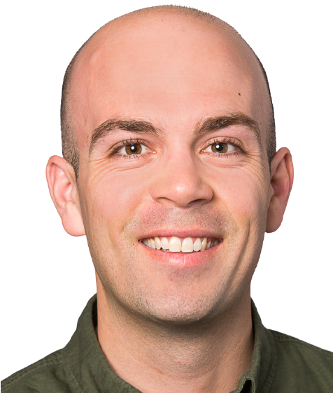News
Published 15 November 2021World Antimicrobial Awareness Week: Dr Matthew McNeil

World Antimicrobial Awareness Week (WAAW) is celebrated annually to increase global understanding of antimicrobial resistance. This year we're highlighting researchers in Aotearoa working to raise awareness on antimicrobial resistance.
Dr Matthew McNeil is a Senior Research Fellow at the University of Otago. He has previously held post-doctoral positions in France and the United States, where he has worked on large collaborative drug-discovery projects with pharmaceutical companies and academic institutions.
Matthew's current research programme, supported by Te Pūtea Rangahau a Marsden the Marsden Fund, uses functional genomics to investigate bacterial genetics, physiology and drug resistance with the goal of identifying novel drug targets to pursue as part of drug-discovery programmes.
Q: Why is it important to celebrate WAAW?
A: Antimicrobial resistance is a major public health crisis that threatens many of the achievements of modern medicine. Antimicrobial resistance is driven by genetic mutations that reduce antibiotic efficacy. However, mutations responsible for antimicrobial resistance can have consequences that disrupt downstream process. Here, we hypothesize that these disrupted processes are hypersensitive to inhibition, and represent unique vulnerabilities in drug resistance pathogens. Specifically, this work is focused on Mycobacterium tuberculosis, a major cause of infectious disease morbidity and mortality that currently accounts for 1/3 deaths associated with antimicrobial resistance.
Treatments for drug-resistant strains of M. tuberculosis are very long, typically between 9-18 months, with low cure rates. In this work, we are using a combination of microbiological and genetic approaches to identify antibiotics that can target these disrupted processes to rapidly kill drug-resistant strains. We hope that this work will lead to the development of novel treatment strategies that shorten the duration of current treatments and can prevent the emergence of future antimicrobial resistance.
One of the primary drivers of antimicrobial resistance is the inappropriate use of these valuable medicines. It is important that we celebrate World Antimicrobial Awareness Week to not only raise awareness of this ever-increasing global health problem but also to encourage simple behavioural changes that everyone can make to help to address this issue.
Matthew McNeil
Dr
It is important that we celebrate World Antimicrobial Awareness Week to not only raise awareness of this ever-increasing global health problem but also to encourage simple behavioural changes that everyone can make to help to address this issue.
